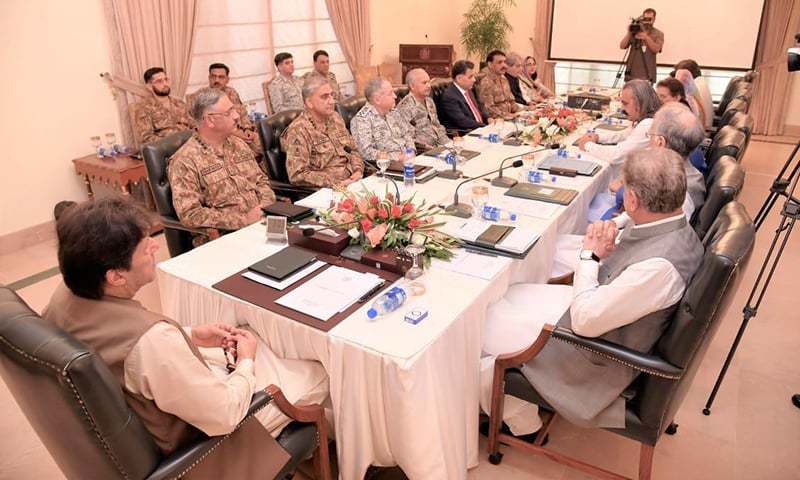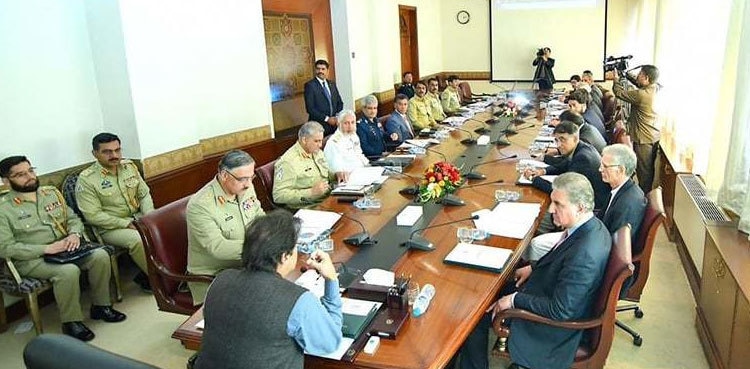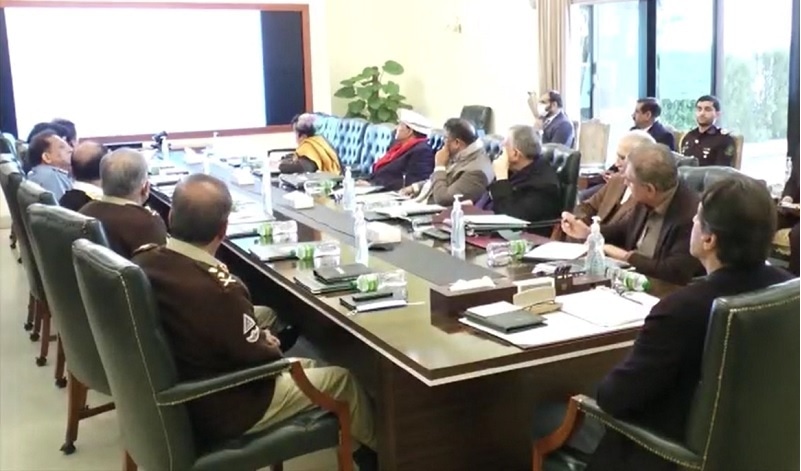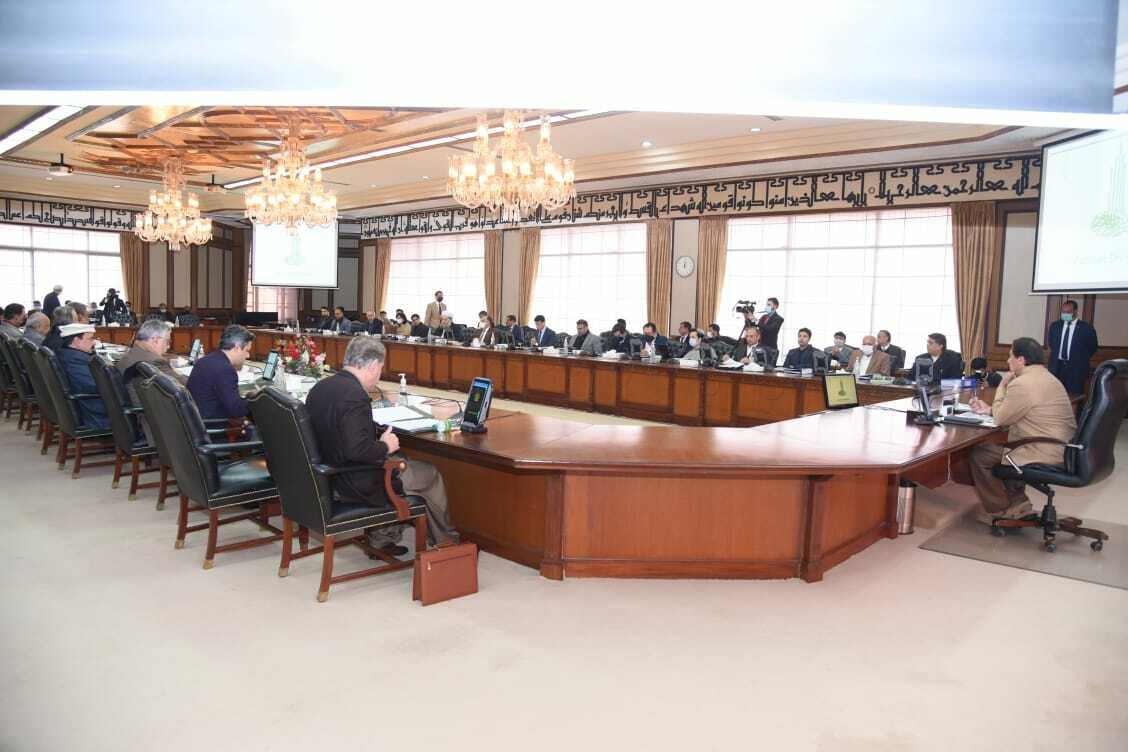Dawn.com
March 31, 2022
Prime Minister Imran Khan on Thursday chaired a meeting of the National Security Committee (NSC) at the Prime Minister's House in Islamabad.
The NSC is the highest forum for coordination on security issues and includes key federal ministers, the national security adviser, services chiefs and top intelligence officials.
The development comes a day after the premier shared a letter — purportedly showing evidence of a foreign conspiracy to oust his government — with his cabinet members in a hurriedly called meeting, which was not attended by PTI's two major allies — Muttahida Qaumi Movement-Pakistan (MQM-P) and Balochistan Awami Party (BAP) — despite being invited. It has been learnt that the letter was shown to the cabinet members on a TV screen.
PM Imran also called a selected group of TV anchors and informed them that "the language of the letter was threatening and arrogant" and that Pakistan would face dire consequences if the no-confidence motion failed.
However, the premier did not show the letter to the media.
This rush to share the 'secret letter' with the cabinet and some journalists came after it became clear that the prime minister had lost his majority in the National Assembly (NA) following the MQM-P's decision to support the joint opposition in the no-trust resolution against the prime minister.
A key ally of the PTI government in the Centre, the MQM-P has seven seats in the NA and after its decision to part ways with the government, the opposition has gathered the support of 177 MNAs, five more than the 172 required to gain a majority.
Yesterday, Chief of the Army Staff (COAS) met PM Imran twice after which some ministers claimed that neither the premier had been asked to resign nor would he opt for it.
The 'threat letter' first surfaced on Sunday during PTI's public rally, where the PM
brandished it as evidence of a "foreign conspiracy" to oust him, asking his party dissidents, as well as disgruntled allies, to change their minds and avoid becoming part of a "foreign plot" against him.
Information Minister Fawad Chaudhry had told
Dawn yesterday that PM Imran had decided to present the 'secret letter' during an in-camera session of the NA or a joint session of parliament, however, no date for when such a session would be called was given.
In a tweet, National Assembly Speaker Asad Qaisar had stated: "If the parliamentary leaders from the government and the opposition side agree, the issue of the sensitive letter can be discussed at an in-camera meeting of the Parliamentary Committee on National Security."
The National Assembly session will resume today at 4pm after a recess of three days, with debate on the no-trust resolution on the agenda. Voting on the resolution is expected to take place on April 3.
The letter
In the PTI's public meeting in Islamabad on Sunday, the premier had pulled out a piece of paper from his pocket and waved it at the crowd, claiming it was evidence of an "international conspiracy" being hatched to topple his government.
"Foreign funding is being used to change the government. Money is coming from abroad and people inside the country are being used. Some of them are unaware they are being used and some are intentionally using this money against us," he had alleged.
In a joint press conference on Tuesday, Minister for Planning and Development Asad Umar and Information Minister Chaudhry
said the prime minister had agreed to present the letter to Chief Justice of Pakistan Umar Ata Bandial.
"If someone has doubts, the prime minister says if necessary, and for the people's satisfaction, he is ready to present the letter to the chief justice of the SC, as he enjoys a good reputation," Umar said, adding that only three to four people, including him, had seen the letter.
"The letter has been shared with the top civil and military leadership and only two or three cabinet members," he added.







